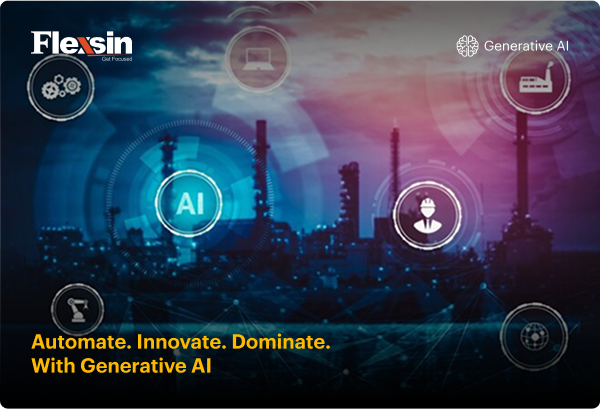In a world where technology continuously reshapes industries, healthcare stands out as one sector poised for major transformation. The advent of Generative AI in healthcare has opened up new possibilities for improving patient care, enhancing operational efficiencies, and driving innovations that were once thought impossible. But, as exciting as it is, implementing this advanced technology requires careful planning, expert guidance, and strategic integration to fully realize its benefits.
1. The Promise of Generative AI in Healthcare
Imagine a healthcare ecosystem where data is not just processed, but intelligently interpreted and acted upon. Generative AI in healthcare can analyze vast amounts of medical data, predict outcomes, generate insights, and even assist in clinical decision-making—all in real-time. This is not science fiction but a growing reality.
According to a report by McKinsey, AI in healthcare could save the industry up to $150 billion annually by 2026, streamlining administrative tasks, optimizing resource management, and improving the quality of care. By automating routine processes and providing predictive insights, Generative AI for business offers a pathway to faster, more accurate diagnoses, personalized treatment plans, and reduced costs across the board.
2. Key Areas Where Generative AI Is Transforming Healthcare
AI’s ability to analyze large datasets quickly and accurately has profound implications for diagnostics. In the past, clinicians relied heavily on experience and manual analysis to interpret patient data. Generative AI consulting for healthcare takes this to the next level by synthesizing diverse data sources—medical records, genetic information, imaging, and lab results—to help physicians make more informed decisions.
- AI-assisted diagnostic tools are increasingly used in identifying diseases, particularly in radiology, oncology, and cardiology. For example, AI systems can analyze X-rays, CT scans, and MRIs faster and more accurately than traditional methods, reducing human error and enhancing diagnostic precision.
- Predictive analytics powered by AI can forecast the progression of chronic diseases, enabling healthcare providers to take preventive actions before conditions worsen.
Streamlining Administrative Processes
Healthcare institutions face mounting pressures to reduce administrative overhead while maintaining the quality of care. From billing and coding to managing patient appointments and insurance claims, administrative tasks can consume a significant portion of resources.
With Generative AI implementation services, administrative functions are becoming more automated. AI-powered systems can process claims, generate reports, and streamline billing cycles, allowing healthcare providers to focus on patient care rather than paperwork.
This not only reduces operational costs but also enhances patient satisfaction by speeding up processes and minimizing wait times.
Enhancing Patient Experience with AI-Powered Personalization
In today’s patient-centric healthcare model, personalized care is essential. Generative AI in healthcare allows for real-time personalization of treatment plans based on individual patient data.
• AI-driven chatbots and virtual assistants can provide 24/7 patient support, answering questions, scheduling appointments, and even delivering reminders for medication.
• AI also enables customized treatment options, allowing healthcare providers to tailor therapies based on a patient’s medical history, lifestyle, and genetic profile, leading to better outcomes.
Accelerating Drug Discovery and Development
One of the most exciting prospects of Generative AI for business is its potential to accelerate drug discovery. Traditionally, the process of identifying and developing new drugs has been a lengthy, costly endeavor. AI models, however, can simulate how different compounds will behave, predict how effective they will be in treating diseases, and even suggest new drug candidates.
By leveraging Generative AI for software development, researchers are now able to identify promising drugs faster, reduce the need for expensive clinical trials, and bring life-saving treatments to market more efficiently.
3. Overcoming Healthcare Challenges with Gen AI
While the potential of AI in healthcare is vast, there are still several challenges to overcome. These include:
Data privacy and security:
With sensitive medical data being processed, ensuring compliance with regulations such as HIPAA (Health Insurance Portability and Accountability Act) is critical.
Integration with legacy systems:
Many healthcare providers still rely on older technologies, making integration with AI solutions challenging. Generative AI system integration must be carefully managed to work seamlessly with existing infrastructure.
Bias in AI algorithms:
AI models can unintentionally reinforce biases present in historical data, leading to skewed results and potentially discriminatory practices. It’s crucial to ensure that AI systems are trained on diverse and representative data.
4. The Future of Generative AI in Healthcare
The future of Generative AI in healthcare looks promising, with continual advancements making the technology more accessible and effective. As AI models evolve, they will become better at understanding complex human biology, enhancing personalized care even further.
Already, we’re seeing the emergence of AI-powered tools that not only assist in diagnostics but also in real-time decision-making. These technologies can analyze patient data, suggest treatment plans, and even predict potential health risks. As AI becomes more ingrained in healthcare, it’s likely that we’ll see even greater improvements in the quality of care and operational efficiency.
5. Embracing the Change
If you’re ready for Generative AI integration into your healthcare practice, it’s important to partner with experienced professionals who can guide you through the process.
Flexsin offers a range of Generative AI consulting services to help healthcare providers adopt these powerful tools. From initial consultation to Generative AI system integration and deployment, we’re here to ensure a seamless transition that maximizes the potential of AI for improving patient outcomes and operational efficiency.
As we look toward the future, Generative AI in healthcare is set to become an essential tool in delivering high-quality care, optimizing operations, and reducing costs. The healthcare industry is already beginning to realize the immense benefits of AI, and the pace of adoption is only going to accelerate.
By leveraging Generative AI in finance, software development, and business, healthcare providers can make more informed decisions, improve patient care, and stay ahead of the competition. Embracing AI now is the first step toward a smarter, more efficient, and patient-centered healthcare future.
At Flexsin, we specialize in helping healthcare organizations integrate Generative AI solutions to drive operational excellence and deliver superior patient care. Our team of experts will guide you through the process of adopting and integrating AI technologies into your healthcare operations seamlessly. From initial consultation to full deployment, we are committed to your success.
We have delivered GenAI driven healthcare platforms for clients like MD HealthTrak, ECG Clinical Wear, OCC Switzerland, Sando Surgical, and many more, that automate billing, predict clinical outcomes, and personalize care with precision and compliance.
Ready to take your healthcare services to the next level with AI? Connect with Flexsin, to discuss how we can assist you in implementing Generative AI to revolutionize your healthcare business. Let’s build a smarter, more efficient future together!


 Sudhir K Srivastava
Sudhir K Srivastava
